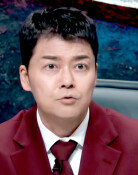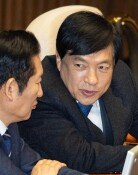Structural reforms needed for strong fundamentals of companies
Structural reforms needed for strong fundamentals of companies
Posted August. 30, 2019 07:39,
Updated August. 30, 2019 07:39
An executive at a middle-sized company told me this story. A businessman was drinking boilermakers with his subcontractors and asked them how much discount would be possible for their potential deal. The rate went up each round from 5 to 7, and to 9 percent. The executive said, “9 percent seems roughly enough, but there is not a sliver for me,” and the final discount rate was concluded at 10 percent.
Though exaggerated a bit, this story from several years back offers a cross-section into the degenerative industrial structure of South Korea where larger predatory businesses try to slash the bidding prices from subcontractors for lining their back pocket and the subcontractors are left with no other choice to do business with them for survival. A closer look into this structure shows that it is large companies that decide on the type and amount of supplies. Upon the placement of orders, small companies scramble to Japan to import the necessary supplies or purchase facilities to manufacture the products as instructed. And in this type of chains of supply, subcontractors tend to hire more expendable manpower rather than skillful craftsmen. This is the typical mistake made at the first generation to accumulate technologies on the part of small companies, and moving into the next generation, they struggle to find vision and get busy finding ways to liquidate their enterprises into cash. This is partly why the second generation of subcontracting companies choose to become financial experts in South Korea.
In a market structure where the provision of supplies takes place vertically, a quest for technological development is dwarfed by the rent-seeking behaviors on the part of the vested interests on every echelon. The scale of rents might differ, but in this frame, small companies are not qualified to get indulgence for their sin. The skirmishes between small and large interests slowly turn this cartel into a complicated, hostile system of symbiosis. The government and politicians say that the recent exports restrictions imposed by Japan is attributable to the practice of large-sized Korean companies to depend on the supplies from foreign market and their failure to cultivate domestic parts suppliers; however, such a view stems from the wrong perception that dichotomizes companies and their subcontractors as the strong and the weak.
Japan’s economic retaliation is intended to break the weakest chain of Korean industry. This poses a conundrum for Seoul as it must first tackle the long-standing practice of supply cartels. The Korean government announced its plan to put in more than five trillion won for stabilization of supply chains for materials, components, and equipment, over the next three years. A financial support is needed, but it is not enough to remove the cartels within the enclosure. Without providing guarantee for the sustainability of technological development, the budget will easily become the subject of misappropriation. The government’s plan to establish a symbiotic ecosystem for companies and subcontractors reveals a want of an action to fix our vertical supplies structure. What we need the most now is not some CSR activity by major companies to pay for below-the-par technologies, but their success in developing proprietary technologies to become envy of the world.
Korea’s strategic response to Japan’s economic retaliation was to make the case that Tokyo’s moves are reckless enough to disrupt the global supply chains and inimical to Japanese companies as well. It was logical enough, but the ripple was much milder than expected. A perception must permeate the mindset of each one of us that a continued effort for technological development serves not only the national interests but private ones. Suspension of inheritance tax can be considered when a company in the process of developing new technologies is shifting its leadership, and the unpaid taxes could be recollected after the heir of the company goes public with their proprietary technologies and tries to sell the company. It takes a persuasive policy to get across the message on the importance of Korea’s technological independence, not some emotional rabble-rousing.
legman@donga.com







